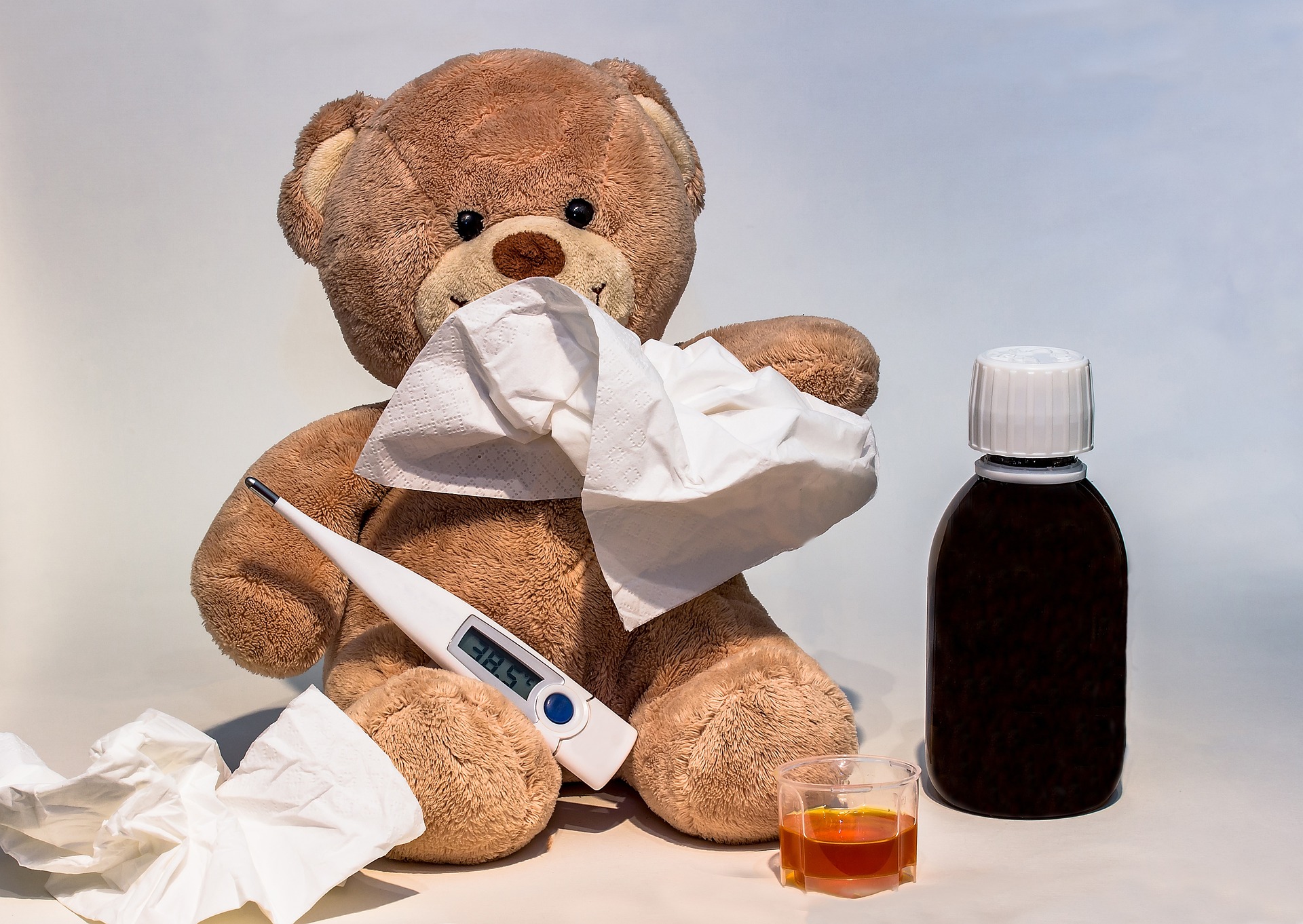Urgent Care
Diagnosis, treatment, and services for your everyday medical needs such as flu shots and lab work.
Feb 13, 2023

All kids get a fever at some point or another. This may sound like a bad thing, but it’s good because it can help your child’s immune system fight the infection they are struggling with. Still, it’s important to make sure your son or daughter receives the proper treatment and care necessary to make a full recovery. Whether you’re an adult or a child, fevers are brutal to deal with, but fortunately, there are plenty of ways to avoid, treat, and prevent them!
We all have been with a person who is sick and asks to feel their head, checking to see if they feel warm. This is a common method to see if someone is “burning” up and has a fever. However, for it to actually be a fever, the body’s temperature must be 100.4°F (38°C) or higher. The various and most accurate ways of measuring a temperature are rectal, armpit, ear, forehead, and mouth. Adults sometimes get a slightly different number, so the number that means a child has a fever is a little different too.
Other signs that your child might be suffering from a fever would be having chills, cold sweats, flushed skin, above-average temperature, or acting differently. Due to the discomfort, they are feeling your child may become fussy or cranky.
Typically, fevers in kids are caused by an infection. The cool thing is that a fever will help the body by stimulating the immune system to fight the infection. Healthcare experts also believe the higher the temperature, the harder it will be for germs to grow. A couple of other reasons kids may suffer from fevers would be due to immunizations, a child who is teething, and believe it or not, overdressing. Infants, more specifically newborns, may get fevers if they’re overdressed, wrapped in a blanket, or a hot environment because they don’t regulate their body temperature as well as older kids.
Treating a fever with medicine isn’t needed if a child is still playing, drinking, and doesn’t have pain. You should supply your child with medicine only when a fever causes them discomfort or prevents them from drinking fluids. It’s worth mentioning that when your child does have a fever, keep an eye on them, help them to rest, and keep offering fluids. This is so they can make up for the fluids they lose from sweating. Oral rehydration solutions like Pedialyte, are a good choice. You also can give water, soup, ice pops, and flavored gelatin. Avoid drinks with caffeine, including colas and tea, which can make dehydration worse by making kids pee more often. Let kids eat what they want (in reasonable amounts), but don’t force it if they don’t feel like eating much!
Making sure your child stays hydrated isn’t the only thing you can do. Having them wear lightweight clothing and stay covered with a light sheet or blanket can also help. It’s important to remember to keep the room at a comfortable temperature and make sure they get plenty of rest. Staying in bed all day isn’t necessary, but a sick child should take it easy.
The temperature that should trigger a call to your child’s healthcare provider depends on their age, the illness, and whether they have other symptoms. In general, call their provider if your child is younger than 3 months old with a rectal temperature of 100.4°F (38°C) or higher, 3 months or older with a temperature higher than 102.2°F (39°C), or at any age but has a health problem like cancer or sickle cell disease and has a fever.
In most cases, your child will be back to their old self within a couple of days. For older babies and kids, the way they act is more important than the reading on your thermometer or what symptoms they’re exhibiting. Don’t be alarmed if your son or daughter is a bit cranky when they have a fever. This is completely normal and should be anticipated, but if you are ever in doubt about what to do, or if your child is acting ill in a way that concerns you, the experts at Chai Care will happily take a look!
* Legal disclaimer: The content of this article and the entire Chai Care blog is for educational purposes only; it does NOT constitute medical advice and must not be considered as such. Please consult a medical professional regarding any symptoms or health concerns you or your loved ones.

Nobody wants to spend hours sitting in a crowded emergency room, especially when you or your loved ones…

In today’s fast-paced world, time is a precious commodity, especially when it comes to healthcare. At Chai Care,…

Healthcare is the cornerstone of a thriving society, and at Chai Care, we firmly believe that it should…

In the fast-paced world of urgent care, every moment counts. When patients walk through our doors at Chai…

Major or small, we can all think back to a time when we cut, scraped, or grazed ourselves.…

Kids are bound to injure themselves at some point or another. Sometimes it’s a broken bone after taking…

There is no other way of saying it, but we all poop. It’s something every person does and…

Broken bones are no joke. Injuries like breaks and fractures can have long-term effects if gone untreated and…